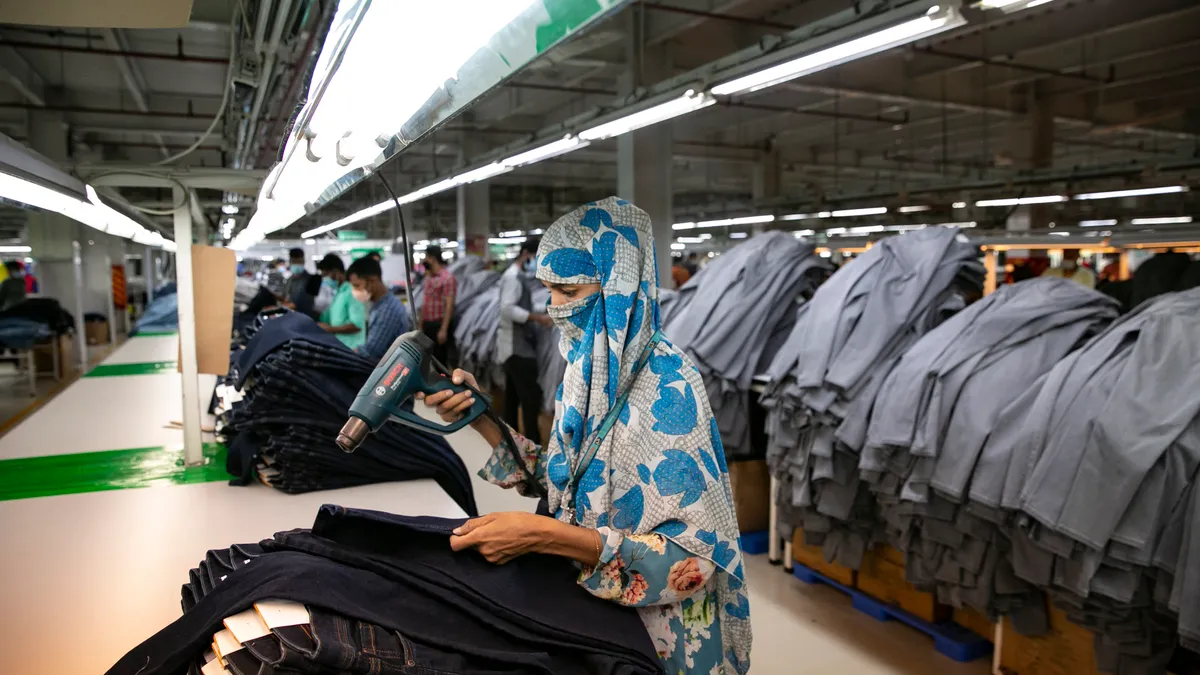The onset of the COVID-19 crisis three years ago showed just how vulnerable overseas suppliers were to the actions of deep-pocketed brands and retailers.
A tsunami of cancellations, payment delays and order changes by buyers wreaked havoc on suppliers. They were also disastrous for many factory workers abroad who lost income, often took on debt and struggled to buy food.
In apparel, many of the most exploitative practices have continued since that time and “in some cases have grown more extreme,” according to a new study out from researchers with the NYU Stern Center for Business and Human Rights.
The paper, based on interviews with 28 manufacturers and 20 workers in Bangladesh, examines a set of buyer practices that could strain supplier finances and in turn can hurt worker pay and treatment. Those include:
- Pressure for “unreasonable price reductions,” including orders where prices had previously been agreed to and production had begun.
- Withholding payment and delaying deliveries. Suppliers told researchers that extended payment terms, which buyers pushed at the outset of the pandemic, have become “normalized.”
- Canceling bookings and projections. Suppliers set aside capacity based on these bookings before a formal, binding contract has been signed. Canceling them leaves manufacturers with unused capacity and materials.
- Reliance on third-party sourcing agents. Often, these intermediaries are the players negotiating prices down and can play manufacturers against each other in competitive processes. They also take a cut of the available margin for themselves, according to the suppliers who spoke to the researchers.
The above practices can harm factories financially. Even so, many companies accept buyers' terms so as not to lose important customers and orders, the report found.
The paper’s authors — Natasja Sheriff Wells, senior program manager for the NYU Stern Center, and Chana Rosenthal, principal and founder of reDesign Consulting and adviser to the Stern Center — traveled to Bangladesh earlier this year for the study.
“Hearing that 2022 was for some suppliers harder than the pandemic was a surprise,” Wells said in an interview.
Difficulties for suppliers last year were the result in part of economic conditions related to Russia's invasion of Ukraine and the ensuing spikes in energy and commodity prices.
Apparel buyers also used economic events as a pretext for negotiating prices down, according to the paper. Purchasers, for example, have asked suppliers for discounts because of unfavorable currency exchange rates. “We heard that a lot” from suppliers, Wells said.
All of this has happened nearly 10 years since the collapse of the Rana Plaza factory in Dhaka, which killed more than 1,000 workers. While that disaster has led many businesses to rethink their responsibility for safety at supplier factories, and some measurable safety improvements, the Stern authors argue that “the purchasing practices of global buyers have remained onerous.”
Wells and Rosenthal conclude with a set of recommendations for buyers, including ending “unreasonable” price cuts on orders, committing to payment timelines and treating bookings on factory capacity as binding contracts.
The authors also urge buyers to reconcile commitments to workers in supply chains with their commercial agreements with manufacturers.
“We want them to internalize their commitments to human rights,” Wells said of retailers and brands. “And to do that they need to better understand their business processes, and their potential impact on workers in their supply chains. It may come at a cost, it might require investment, but the cost of not making those changes is just too high.”













